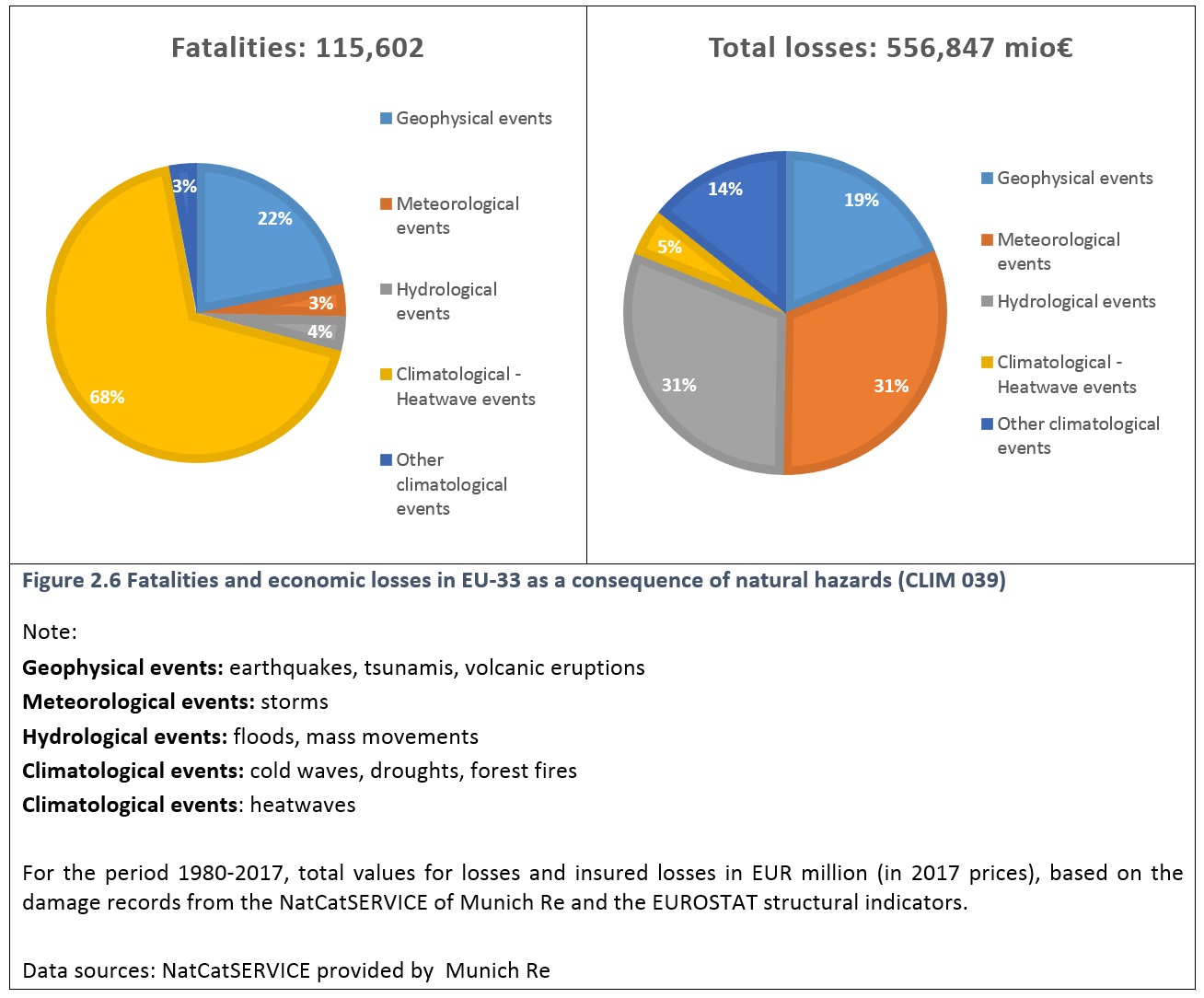Post a comment on the text below
In Europe, global warming is projected to lead to both higher intensity of precipitation and longer dry periods. Projections of extreme precipitation events indicate an increase in the frequency, intensity, and amount of water. Events currently considered extreme are expected to occur more frequently in the future. If all other factors affecting flood risk remain the same, these climatic changes will also lead to increased risk. It is expected that both flood risk and the risk of drought will increase across Europe in the next decades with considerable impacts on society as a consequence (EEA, 2017a).
Flood risk is associated with heavy precipitation events that may come in many forms, ranging from high-intensity but short lived events to long but low-intensity events. Both may lead to flooding. Whether a heavy precipitation event actually leads to flooding depends on physical characteristics of the watershed and its land use properties. Steepness of the watershed, together with the ability of its reservoirs, soils and floodplains to absorb and hold water are factors that influence the speed of which precipitation moves into rivers. Faster transport, generally increase the likelihood of flooding. More formally, flood risk is defined as the probability of a flood event occurring, combined with its impact on people, the environment, cultural heritage and the economy, i.e. vulnerability to flooding is greater in an urban area and lower in a natural floodplain.
Today, floods remain one of the most costly natural disasters in Europe (Figure 2.6). Every year flood events in Europe, exceeds the capacity of existing systems to contain water, with damage to property and sometimes even loss of lives as a consequence (EEA, 2019a). Of the four most costly climate extremes in the EU, two are related to floods. The 2002 flood in Central Europe, which was also the most costly, exceeded EUR 20 billion and the 2000 flood in Italy and France had a cost of EUR 13 billion (2016 values).

You cannot post comments to this consultation because you are not authenticated. Please log in.



Previous comments
"Every year flood events in Europe, exceeds the capacity" needs to be without comma and verb in plural number.
. Every year flood events in Europe, exceeds the capacity of existing systems - propose to be explicit not all flood events are "catastrophic" but a increasing? number - there are many floods which are not doing harm but flooding flood plains...
“Faster transport should be increases , not increase”
POLAND
figure 2.6. - subtitles partially invisible
POLAND
Last paragraph - maybe it is better to change extremes into another word like events?
Was the rain an extreme? Floods happen and it was so costly inter alia becasue of soil sealing and houses built on areas that used to be flooded in the past.